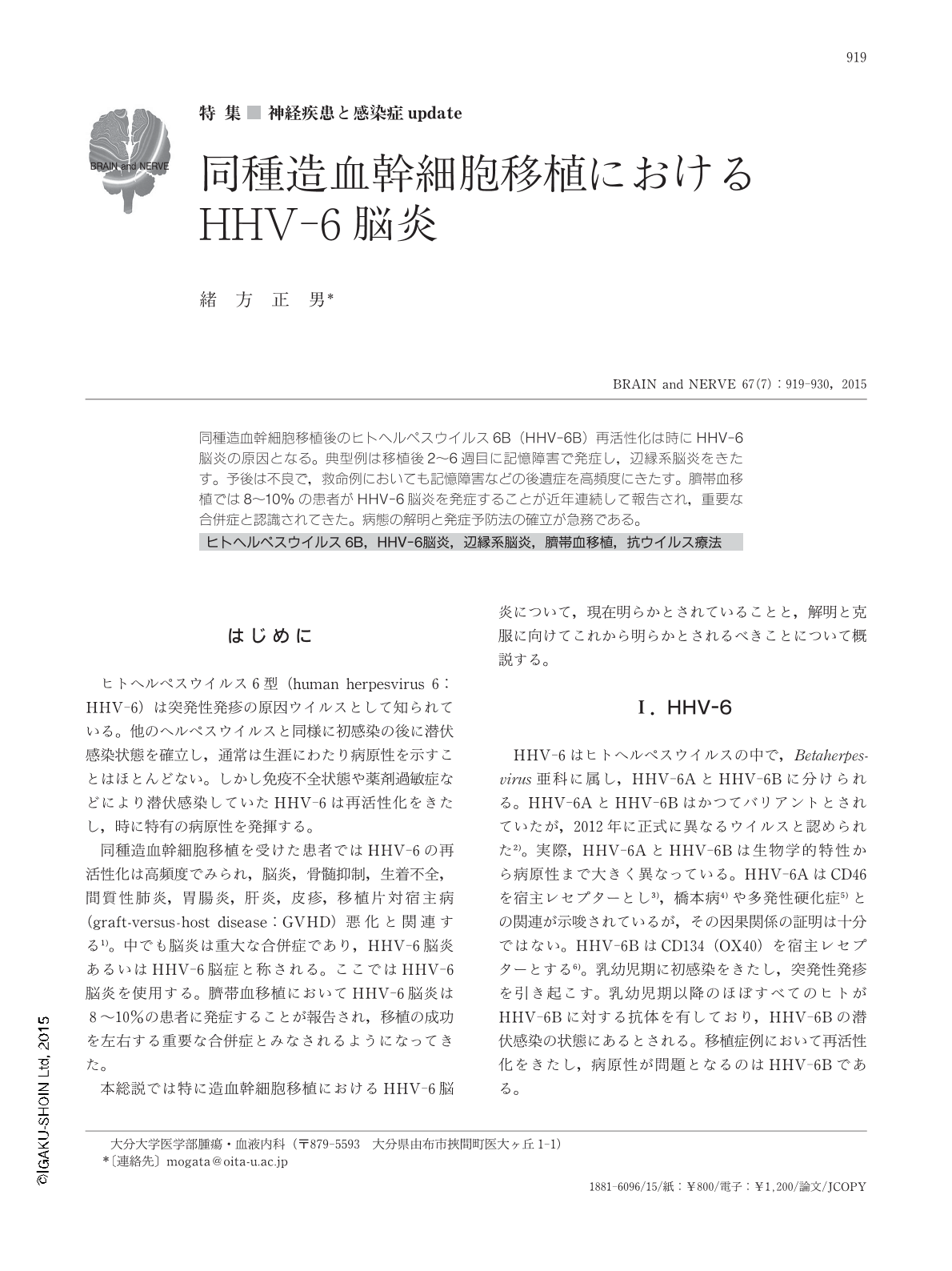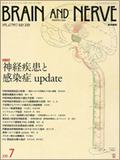Japanese
English
- 有料閲覧
- Abstract 文献概要
- 1ページ目 Look Inside
- 参考文献 Reference
同種造血幹細胞移植後のヒトヘルペスウイルス6B(HHV-6B)再活性化は時にHHV-6脳炎の原因となる。典型例は移植後2〜6週目に記憶障害で発症し,辺縁系脳炎をきたす。予後は不良で,救命例においても記憶障害などの後遺症を高頻度にきたす。臍帯血移植では8〜10%の患者がHHV-6脳炎を発症することが近年連続して報告され,重要な合併症と認識されてきた。病態の解明と発症予防法の確立が急務である。
Abstract
The reactivation of human herpesvirus-6B (HHV-6B) is common after allogeneic hematopoietic cell transplantation (allo-HCT), and it is sporadically associated with the development of HHV-6 encephalitis. HHV-6 encephalitis typically develops around 2-6 weeks after allo-HCT, and it is characterized by short-term memory loss. Magnetic resonance imaging typically shows bilateral signal abnormalities in the limbic system. The incidence of HHV-6 encephalitis is reportedly 0-11.6% after bone marrow or peripheral blood stem cell transplantation and 4.9-21.4% after cord blood transplantation. The mortality of HHV-6 encephalitis is high, and survivors are often left with serious sequelae. Antiviral therapy using foscarnet or ganciclovir is recommended for the treatment of HHV-6 encephalitis, but the efficacy of the currently available treatment is insufficient once HHV-6 encephalitis has developed. The elucidation of the pathogenesis of HHV-6 encephalitis and the establishment of preventative therapy are needed to overcome this disease.

Copyright © 2015, Igaku-Shoin Ltd. All rights reserved.


